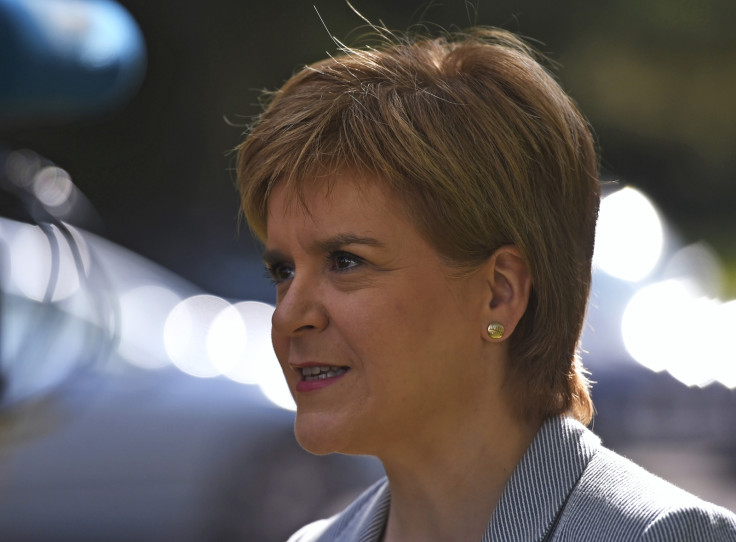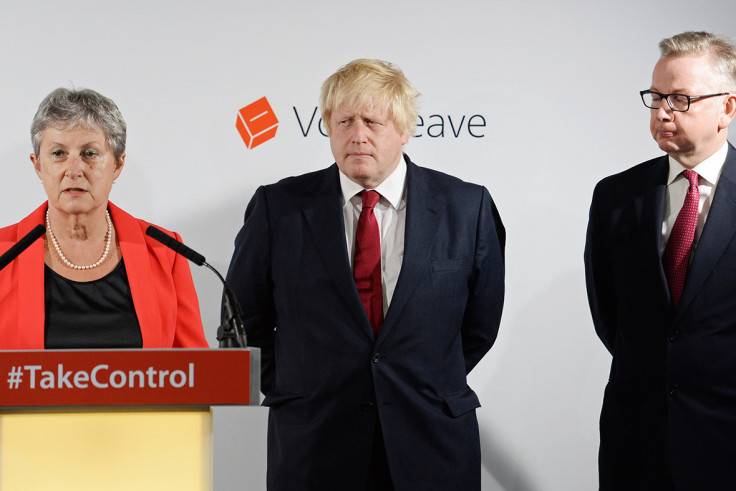EU Referendum: Nicola Sturgeon's full speech outlining second independence vote plans
She said the referendum results was a 'sign of divergence' between Scotland and large parts of the UK.

After a historic referendum that saw the UK vote to leave the European Union, political leaders are setting out their agendas moving forward. In Scotland, 62% percent of votes were for Remain.
Scottish First Minister and leader of the Scottish National Party, Nicola Sturgeon, has said that the vote in Scotland "was not echoed across the whole of the United Kingdom" and that this is a "sign of divergence between Scotland and large parts of the rest of the UK in how we see our place in the world."
She said that the necessary legislation for a second Scottish independence referendum would begin to be prepared and would take place "if and when Parliament so decides".
Read the speech in full:
"Thank you for joining me this morning after a long night - and a long few months - for all of us. Yesterday, Scotland – like London and Northern Ireland – voted overwhelmingly to remain in the European Union.
We voted to protect our place in the world's biggest single market – and the jobs and investment that depend on it. We voted to safeguard our freedom to travel, live, work and study in other European countries.
And we voted to renew our reputation as an outward looking, open and inclusive country.
It is significant – in my view – that we did so after a campaign that was positive about the EU and about the benefits of migration. Indeed, I want to take the opportunity this morning to speak directly to citizens of other European countries living here in Scotland – you remain welcome here, Scotland is your home and your contribution is valued. Unfortunately, of course, yesterday's result in Scotland was not echoed across the whole of the United Kingdom.
That UK wide vote to leave the EU is one that I deeply regret.

It remains my passionate belief that it is better for all parts of the UK to be members of the European Union. But the vote across England and Wales was a rejection of the EU. And it was a sign of divergence between Scotland and large parts of the rest of the UK in how we see our place in the world.
But this vote wasn't just about the EU - it was also a clear expression of the disaffection with the political system that is felt in too many communities. Communities taken for granted by Labour for generations and punished with austerity cuts by the Tories for a financial crisis they didn't cause, used this referendum to make their voices heard. The Westminster establishment has some serious soul searching to do – and I hope that it does it.
But as First Minister of Scotland I have a duty to respond – not just to the outcome across the UK - but also and in particular to the democratic decision taken by the people of Scotland. As things stand, Scotland faces the prospect of being taken out of the EU against our will. I regard that as democratically unacceptable.
And of course we face that prospect less than two years after being told that it was our own referendum on independence that would end our membership of the European Union and that only a rejection of independence could protect it.
Change in circumstances
Indeed for many people the supposed guarantee of remaining in the EU was a driver in their decision to vote to stay within the UK. So there is no doubt that yesterday's result represents a significant and a material change of the circumstances in which Scotland voted against independence in 2014.
My job now is to act responsibly and in the interests of all of Scotland.
The Cabinet will meet early tomorrow morning to discuss our next steps in more detail but I want to set out some immediate priorities. Firstly, we have an urgent job to do to provide as much reassurance and certainty as we can. I spoke a short while ago to the Governor of the Bank of England to discuss his plans to reassure the markets and restore financial stability.
Starting this afternoon Ministers will be engaged this afternoon in discussions with key stakeholders – particularly in the business community – to emphasise that as of now we are still firmly in the EU. Trade and business should continue as normal and we are determined that Scotland will continue now and in the future to be an attractive and stable place to do business. Our resilience committee will meet later this afternoon to oversee these immediate actions.
Secondly, I want to make it absolutely clear today that I intend to take all possible steps and explore all options to give effect to how people in Scotland voted – in other words, to secure our continuing place in the EU and in the single market in particular.
To that end, I have made clear to the Prime Minister this morning that the Scottish Government must be fully and directly involved in any and all decisions about the next steps that the UK government intends to take.
We will also be seeking direct discussions with the EU institutions and its member states, including the earliest possible meeting with the President of the European Commission. I will also be communicating over this weekend with each EU member state to make clear that Scotland has voted to stay in the EU – and that I intend to discuss all options for doing so. I should say that I have also spoken this morning with Mayor Sadiq Khan and he is clear that he shares this objective for London - so there is clear common cause between us.
The discussions that take place over the coming days and weeks will, of course, be led by government but I will seek the support and ensure the involvement of the Scottish Parliament at every step of the way.
I intend to speak to all party leaders later today and make a full statement to the Chamber on Tuesday. I will also make a further statement following tomorrow's meeting of the Scottish Cabinet.
A second referendum?
Lastly, let me address the issue of a second independence referendum. The manifesto that the SNP was elected on last month said this: "The Scottish Parliament should have the right to hold another referendum...if there is a significant and material change in the circumstances that prevailed in 2014, such as Scotland being taken out the EU against our will."
Scotland does now face that prospect – it is a significant and material change in circumstances - and it is therefore a statement of the obvious that the option of a second referendum must be on the table. And it is on the table. Clearly, though, there are many discussion to be had before final decisions are taken.
It would not be right to rush to judgment ahead of discussions on how Scotland's result will be responded to by the EU. However, when the Article 50 process is triggered in three months time, the UK will be on a two year path to the EU exit door.
If Parliament judges that a second referendum is the best or only way to protect our place in Europe, it must have the option to hold one within that timescale.
That means we must act now to protect that position. I can therefore confirm today that in order to protect that position we will begin to prepare the required legislation to enable a new independence referendum to take place if and when Parliament so decides.
Thinking and talking ahead
To conclude, this is not a situation that I wanted Scotland or the UK to be in today. My responsibility in a climate of uncertainty is to seek to lead us forward with purpose. I know that there is a lot of thinking and talking to be done in the period that lies ahead. These are complex issues that we face.
There are many people who voted against independence in 2014 who are today reassessing their decision.
But I know they will not want me to simply assume their support or to hear me talk about the challenges we face as if they are straightforward – they would want me to be straight and honest with them. Now is the time for me as First Minister to seek to lead the country forward as one.
The need to act decisively must be tempered with the need to build consensus – and it will be. That is my duty as First Minister. After a campaign that has been characterised in the rest of the UK by fear and hate, my priority in the days, weeks and months ahead, will be to act at all times in the best interests of Scotland – and in a way that unites not divides us.
And let me also be clear about this - whatever happens as a result of this outcome, England, Wales and Northern Ireland will always be Scotland's closest neighbours and our best friends. Nothing will ever change that.
But I want to leave no-one in any doubt about this. I am proud of Scotland and how we voted yesterday. We proved that we are a modern, outward looking, open and inclusive country. And we said clearly that we do not want to leave the EU. I am determined that we do what it takes to make sure that these aspirations are realised.
I closing let me say just a word or two about the Prime Minister. David Cameron and I have very many political disagreements – not least over the conduct of this referendum. But - as I am learning every single day – leadership is not easy. David has been the Prime Minister of the UK for six years. It is a tough job and, whatever our disagreements, he deserves our thanks for his service. I wish him and his family well for the future."
© Copyright IBTimes 2025. All rights reserved.





















